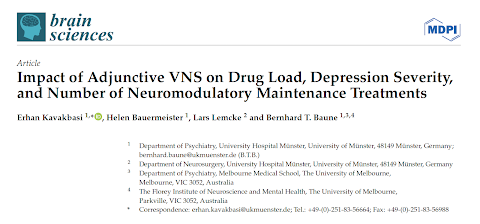ECT in Bipolar Disorder-Case Report
Out on PubMed, from researchers in The Netherlands and the USA, is this case report:
Bipolar Disord. 2020 Sep 27. doi: 10.1111/bdi.13005. Online ahead of print.PMID: 32985049
The abstract is copied below:
First used over eighty years ago, electroconvulsive therapy (ECT) is the oldest of the currently used biological treatments in psychiatry. ECT is indicated for severe depression, mania, treatment resistant schizophrenia psychosis, catatonia, and comorbid depression in dementia. ECT delivers a unilateral or bilateral electrical stimulus to the brain of an anesthetized patient to induce a generalized seizure. Response and remission rates of ECT in depression are high (73%-90% and 67%-73%, respectively) (1). In bipolar disorder (BD) the effectiveness of ECT has been shown for manic, depressive, and mixed episodes.Keywords: Bipolar disorder; Cognition,Cognitive Impairment; ECT; Electroconvulsive Therapy; Older age; White matter hyperintensities.
This is a case report of a 72 year old woman who had successful ECT for severe episodes of bipolar depression. It is a fairly typical story of a complex lifetime history of mood episodes and their treatment.
The title is posed as a question, and the answer is "yes." The case is in the "Clinical Conundrum" feature of the journal, Bipolar Disorder.
The authors make a call for more research in ECT for Older Age Bipolar Disorder (OABD) patients.



Comments
Post a Comment